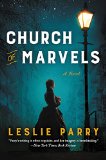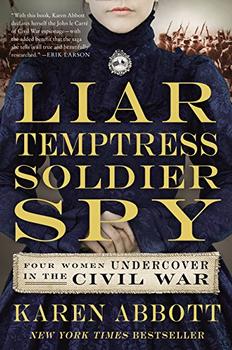Summary | Excerpt | Reviews | Beyond the book | Read-Alikes | Genres & Themes | Author Bio

An irresistible novel set against the backdrop of the American Civil War and based on the real life of Tom Thumb, a young man only twenty-five inches tall.
An irresistible novel set against the backdrop of the American Civil War and based on the real life of Tom Thumb, a young man only twenty-five inches tall, who became America's first internationally recognized entertainer.
By a writer whose previous work has been called "sprawling and elegant" (The New York Times Book Review), this novel weaves together a fascinating behind-the-scenes look at life during the Civil War and a moving tale of one misfit's odyssey to find his place in the world.
Discovered at age four by P.T. Barnum, Tom Thumb soon finds himself traveling internationally, sitting on the laps of the queens of Europe, and entertaining the masses. He meets Czar Nicholas and the King of Saxony, and is invited to the Tuilleries by Louis Philippe. After marrying Lavinia Warren, Tom and wife are hosted at the White House by President Lincoln. With the country at war, Tom and Lavinia set out on their honeymoon tour and witness firsthand the fracture between the states, the heroism of young soldiers, and the unbreakable spirit of the American people.
Written in a voice that is both witty and lyrical, and with a colorful secondary cast including Abraham Lincoln, Walt Whitman, P.T. Barnum, and notable figures of the period, this is an evocative, poignant imagining of one man's story at a unique moment in American history.
Structurally, the prologue is overly long and I would have enjoyed Tom's early history more if it had been woven into the main chapters. Rinaldi also gives the lion's share of the story to Charlie but at times switches over to Vinnie and it is not always clear that the change is necessary. None of which is to say that the novel is not a superbly enjoyable read, or that the characters are not appealing and well drawn...continued
Full Review
 (690 words)
(690 words)
(Reviewed by Kate Braithwaite).
In 1843 in Bridgeport Connecticut, P.T. Barnum hired Charles Stratton, then aged five, to work in his American Museum. In New York, described as "just arrived from England," Charlie became an eleven-year old named Tom Thumb, and soon thrilled the viewing public with his impressions of Napoleon Bonaparte. Of these deceptions, Barnum wrote in his autobiography, "had I announced him as only five years of age, it would have been impossible to excite the interest or awaken the curiosity of the public...he really was a dwarf – and in, this, at least, they were not deceived."
 Barnum himself was then thirty-three years old, the son of a Connecticut shopkeeper who had begun his career as a showman eight years earlier exhibiting a blind ...
Barnum himself was then thirty-three years old, the son of a Connecticut shopkeeper who had begun his career as a showman eight years earlier exhibiting a blind ...

If you liked The Remarkable Courtship of General Tom Thumb, try these:

by Leslie Parry
Published 2016
A ravishing first novel, set in vibrant, tumultuous turn-of-the-century New York City, where the lives of four outsiders become entwined, bringing irrevocable change to them all.

by Abbott Kahler
Published 2015
Karen Abbott tells the stories of four courageous women - a socialite, a farmgirl, an abolitionist, and a widow - who were spies during the Civil War.